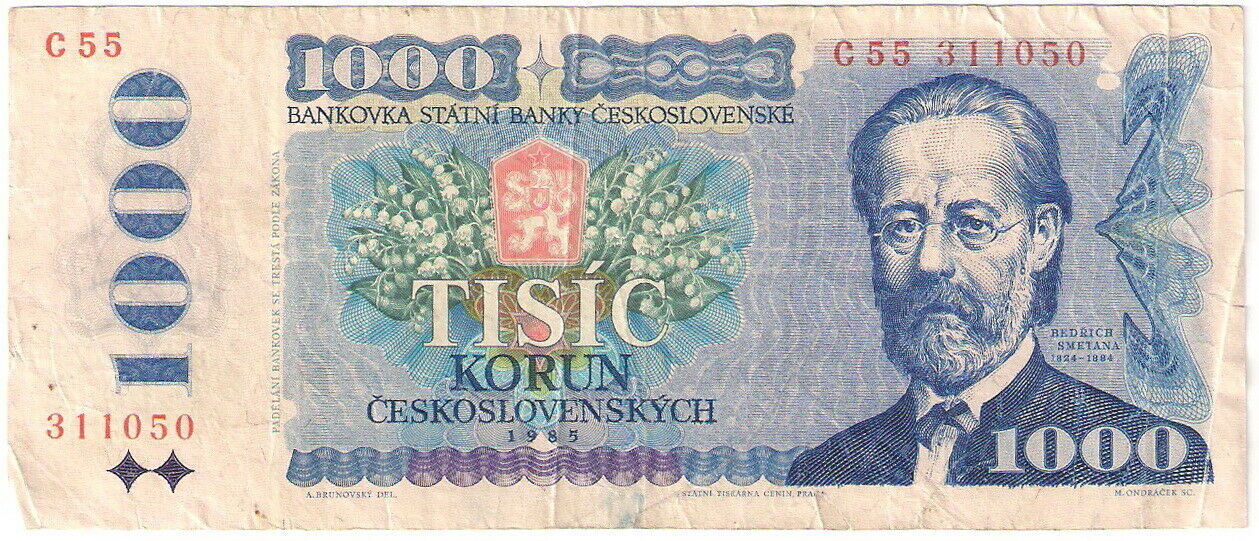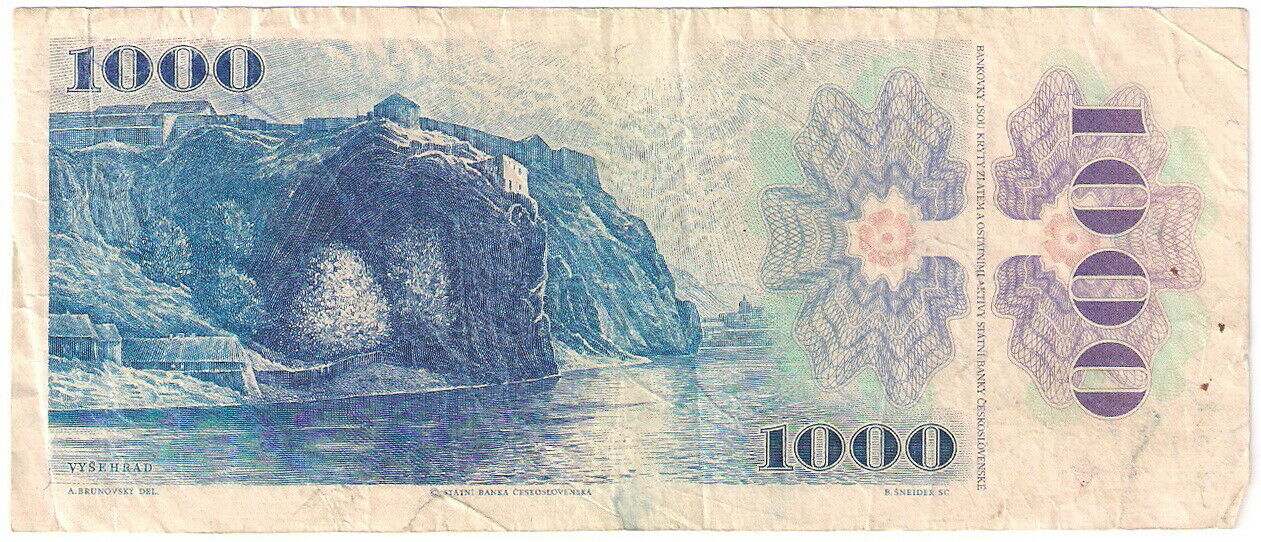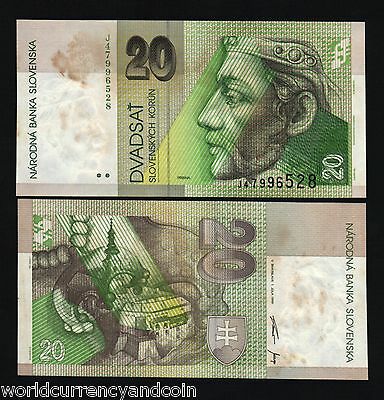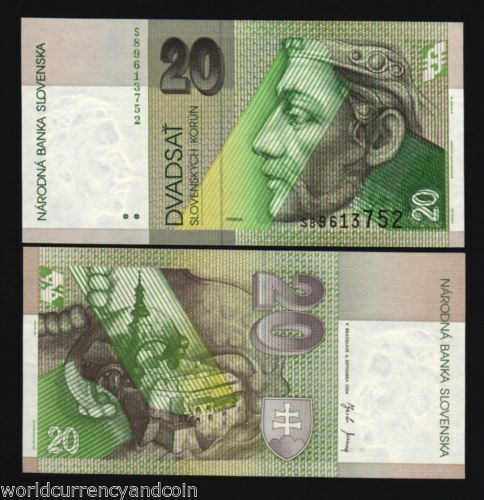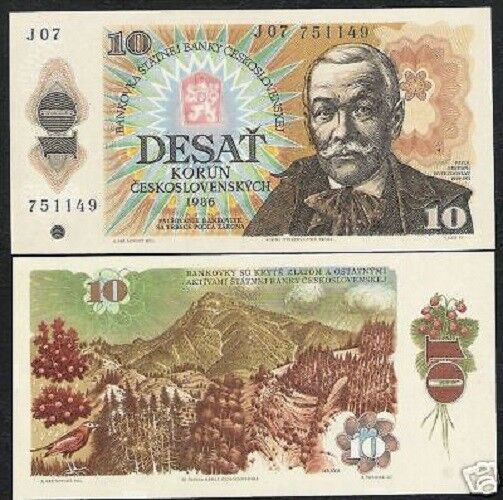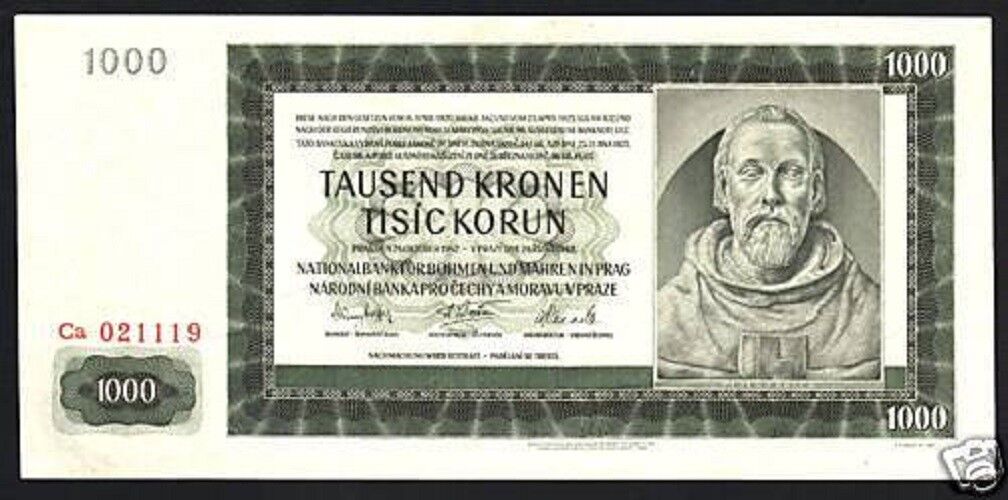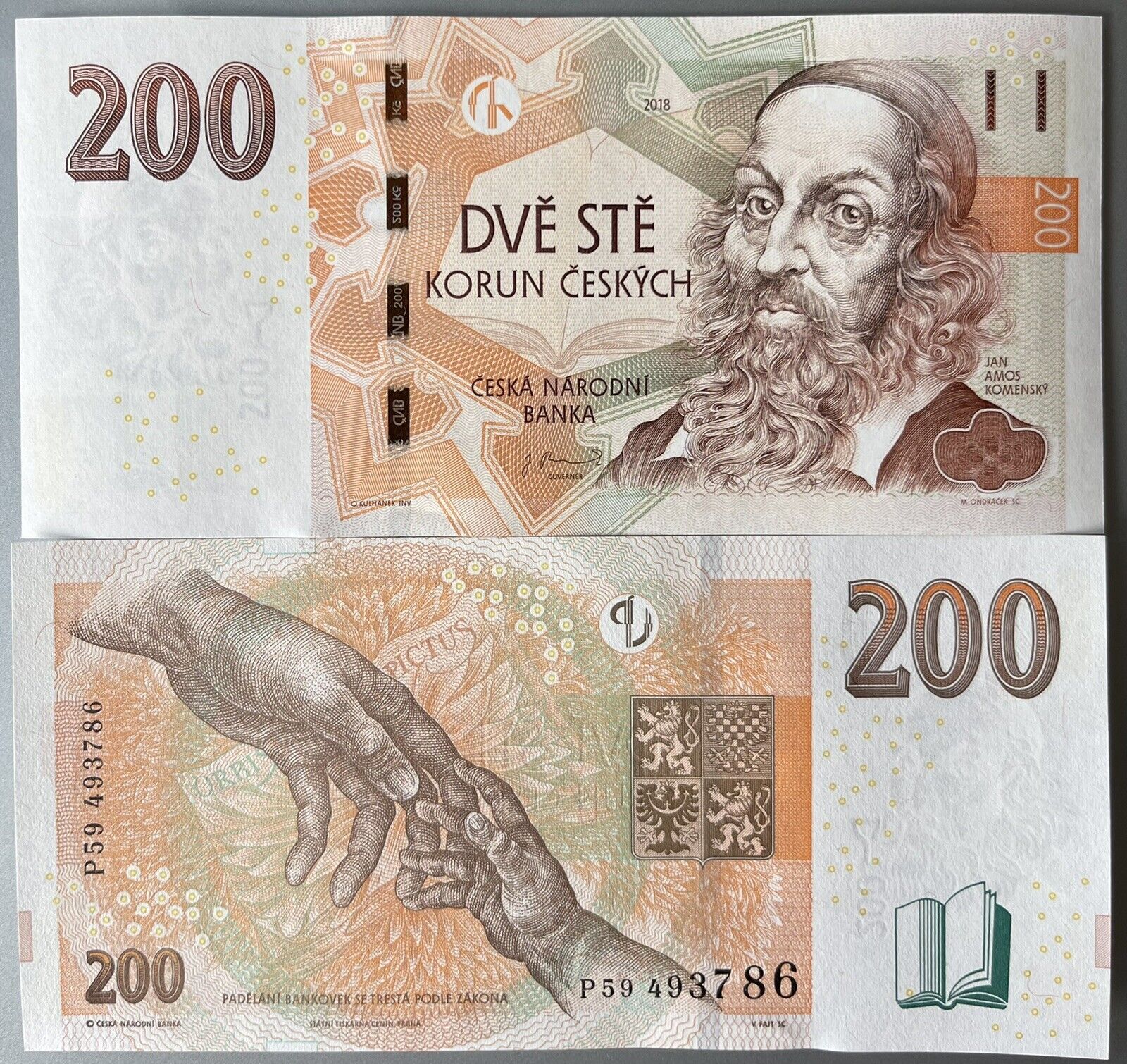-40%
Czechoslovakia banknote - 1000 tisic korun - year 1985 - Bedrich Smetana - rare
$ 45.4
- Description
- Size Guide
Description
The Czechoslovak koruna (in Czech and Slovak: Koruna československá, at times Koruna česko-slovenská; koruna means crown) was the currency of Czechoslovakia from April 10, 1919, to March 14, 1939, and from November 1, 1945, to February 7, 1993. For a brief time in 1939 and 1993, it was also the currency in separate Czech and Slovak republics.On February 8, 1993, it was replaced by the Czech koruna and the Slovak koruna, both at par.
The (last) ISO 4217 code and the local abbreviations for the koruna were CSK and Kčs. One koruna equalled 100 haléřů (Czech, singular: haléř) or halierov (Slovak, singular: halier). In both languages, the abbreviation h was used. The abbreviation was placed behind the numeric value.
Third koruna
The koruna went through a number of further reforms. A particularly drastic one was undertaken in 1953. At that time, the Communist Party of Czechoslovakia had to deal with the fact that there was a double market in the country: a fixed market ensuring basic food availability a remnant of the postwar quota system, and a free market, in which goods were as much as eight times more expensive but better quality. They decided to declare a currency reform valid from 1 June 1953 and to distribute new banknotes printed in the Soviet Union. The reform had been prepared very quickly and was confidential up to the last minute, but some information leaked anyway, causing a lot of panic among people.
The night before the deadline, the president of Czechoslovakia Antonín Zápotocký made a radio speech, in which he lied to the nation that there was no possibility of a reform and quieted down the inhabitants. The next day, people (not lucky enough not to fit into the category of "capitalistic elements", a pejorative category to which the intelligence agency used to blacklist certain individuals) were allowed to change up to 1,500 old korunas for new korunas at the rate of 5 old to 1 new koruna and the rest at the rate of 50 to 1. All insurance stock, state obligations and other commercial papers were nullified. The economic situation of many people got worse insofar as many petitions and demonstrations broke out, the largest of which took place in Plzeň, where 472 people were arrested.
In 1993, in accordance with the dissolution of the Czechoslovak federation, the Czechoslovak koruna split into two independent currencies: the Slovak koruna and the Czech koruna. Accession to the EU in 2004 meant both currencies were slotted to be replaced by the euro once their respective countries meet the criteria for economic convergence and there is the political will to do so. The Slovak koruna was replaced by the euro on 1 January 2009; there is currently no set or estimated date for the Czech koruna to be replaced.
Bedřich Smetana (2 March 1824 – 12 May 1884) was a Czech composer who pioneered the development of a musical style which became closely identified with his country's aspirations to independent statehood. He has been regarded in his homeland as the father of Czech music. Internationally he is best known for his opera The Bartered Bride and for the symphonic cycle Má vlast ("My Homeland"), which portrays the history, legends and landscape of the composer's native land.
Smetana was naturally gifted as a composer, and gave his first public performance at the age of 6. After conventional schooling, he studied music under Josef Proksch in Prague. His first nationalistic music was written during the 1848 Prague uprising, in which he briefly participated. After failing to establish his career in Prague, he left for Sweden, where he set up as a teacher and choirmaster in Gothenburg, and began to write large-scale orchestral works. During this period of his life Smetana was twice married; of six daughters, three died in infancy.
In the early 1860s, a more liberal political climate in Bohemia encouraged Smetana to return permanently to Prague. He threw himself into the musical life of the city, primarily as a champion of the new genre of Czech opera. In 1866 his first two operas, The Brandenburgers in Bohemia and The Bartered Bride, were premiered at Prague's new Provisional Theatre, the latter achieving great popularity. In that same year, Smetana became the theatre's principal conductor, but the years of his conductorship were marked by controversy. Factions within the city's musical establishment considered his identification with the progressive ideas of Franz Liszt and Richard Wagner inimical to the development of a distinctively Czech opera style. This opposition interfered with his creative work, and might have hastened a decline in health that precipitated his resignation from the theatre in 1874.
By the end of 1874, Smetana had become completely deaf but, freed from his theatre duties and the related controversies, he began a period of sustained composition that continued for almost the rest of his life. His contributions to Czech music were increasingly recognised and honoured, but a mental collapse early in 1884 led to his incarceration in an asylum and subsequent death. Smetana's reputation as the founding father of Czech music has endured in his native country, where advocates have raised his status above that of his contemporaries and successors. However, relatively few of Smetana's works are in the international repertory, and most foreign commentators tend to regard Antonín Dvořák as a more significant Czech composer.
